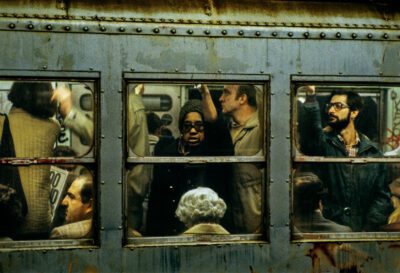Brooklyn-Born Playwright Jordan Seavey Gives Spotlight to Homos
“I just want to invite people into a very specific narrative of two men in a romantic relationship.”
It sounds simple, watered down even, but consider the number of tales—tall, realistic, or anywhere in between—that put enamored men front and center. And if not front and center, perhaps right before you—which may be the case when experiencing the highly intimate and wildly ferocious Homos, or Everyone in America by Brooklyn-born playwright Jordan Seavey.
“I don’t think we can underestimate how many boy-meets-girl stories we’re inundated with,” Seavey adds. “From The Berenstain Bears to Three’s Company to most of Shakespeare, they’re in all the narratives I grew up with.”
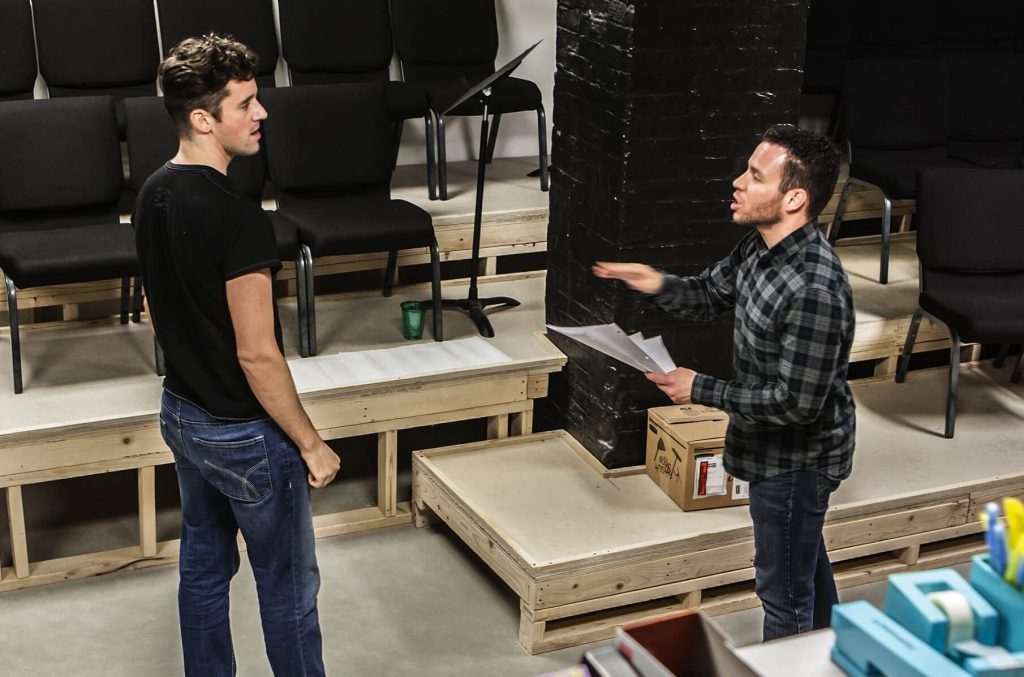 That upbringing would be in Sheepshead Bay where the formative theatrics of Coney Island or Broadway were only a subway ride away, not that Seavey needed to leave home for such magic. His mother clowned and mimed, so as a child he was raised among Brooklyn artists the way most were weaned on Sega.
That upbringing would be in Sheepshead Bay where the formative theatrics of Coney Island or Broadway were only a subway ride away, not that Seavey needed to leave home for such magic. His mother clowned and mimed, so as a child he was raised among Brooklyn artists the way most were weaned on Sega.
“I feel grateful to have been from there because it let me grow up around different kinds of people and also gave me a generally liberal point of view,” Seavey shared. “But I remember homophobia. A lot of things have changed in Brooklyn since I was a teenager there in the 90s. That was the hotbed of a lot of the current changes. It’s affected what I do and write.”
Those changing social tenors (and a few Brooklyn apartments) informed his newest play, Homos. Directed by Mike Donahue, the play starts October 20 with Labyrinth Theater Company.
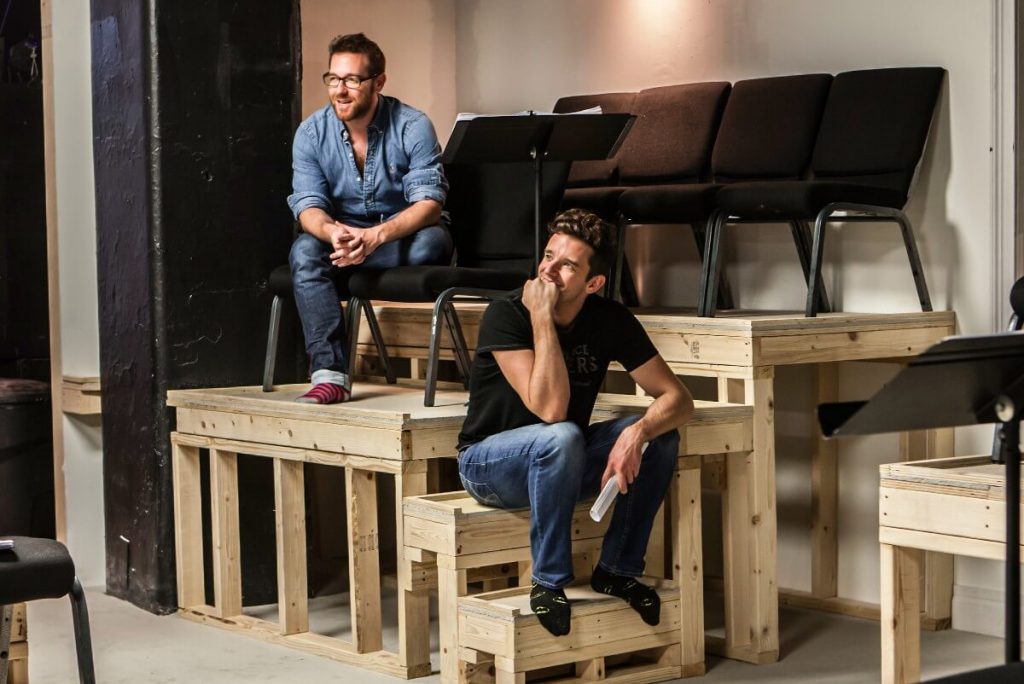

In Homos, the Writer (played by Ugly Betty’s Michael Urie) and the Academic (played by two-time Tony Award nominee Robin de Jesús) treat banter as affection and debate as foreplay. They verbally spar their way through dinner dates, overlap sentences during nighttime tête-à-têtes, and tiptoe into conversations about monogamy before jesting that boyfriends are not to be shared. “I am not a sweater,” the Writer says.
Until a hate crime disrupts their lives, it might be hard to realize this play is capital-h Homosexual in nature despite its more than indicative title. (“I don’t love the term gay play, but this is an undeniably gay play,” Seavey said.) This hesitation to label, this sensitivity to project meaning might stem from the shifting climate of LGBT characters now seen on screen and stage.
We never learn how the Writer or the Academic came out; Homos is not that story. “I don’t want anything about this play to be a coming out play. Those are beautiful, but I feel like this is one version of the gay men’s story that has graduated past that,” Seavey said. With the height of the AIDS epidemic ended and marriage equality won, where are queer stories headed when their characters feel simultaneously accomplished and second-class?
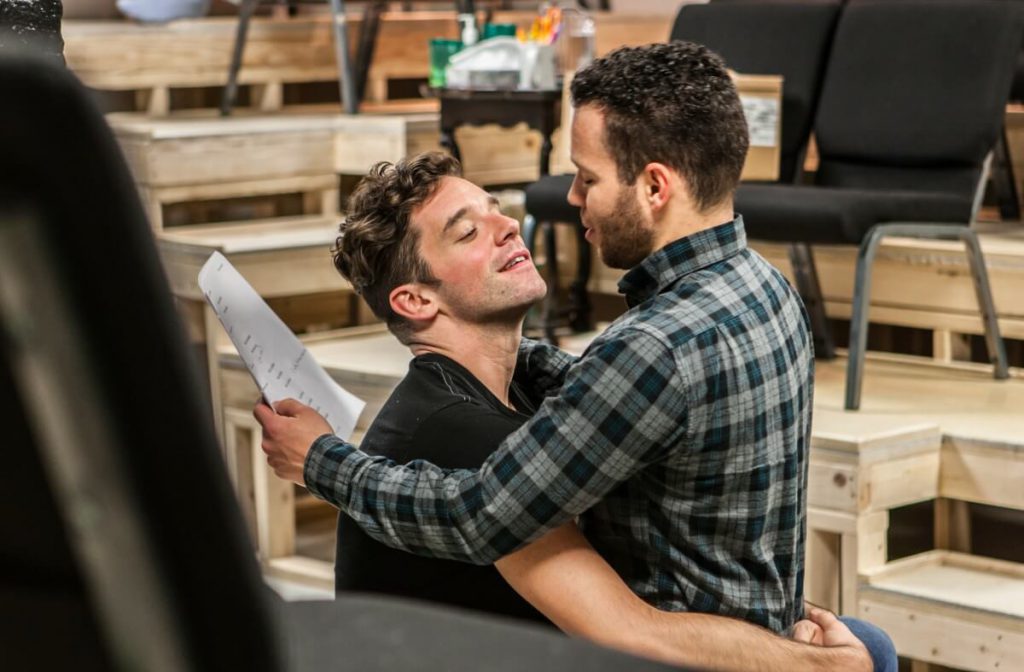

Interestingly, Seavey’s play is not the only one this season to pave a modern gay narrative—Adam Bock’s A Life and Joshua Harmon’s Significant Other also take microscopic looks at the quiet lives of men not confronting disease or political injustice but relationship pangs that feel refreshingly universal and somehow specifically gay.
“People ask me, ‘Your play is largely about a hate crime, why are most of the scenes composed of their relationship before that event?’ For me, it’s because all that shit that goes down between two men in a romantic relationship is what people are afraid of, and that leads to ignorance and fear, and ignorance and fear can lead to physical violence,” Seavey said.
Though Homos is set between 2006 and 2011, the crime would not seem far-fetched headlining tomorrow’s papers. “There has been violence against people in the LGBT community for centuries, but then something like Orlando happens and yet again we are all reminded that this happens and keeps happening,” Seavey said.
Seavey’s plays often add a fictional branch to historical events—6969 was inspired by the chatroom games that led to the stabbing of a 14-year-old Brit in 2003 while Wight takes a satirical look at the 2010 Deepwater Horizons oil spill. Homos has similar factual footing.
“I’ve never set anything in Brooklyn,” Seavey said, “but one of the real life experiences of violence that has been in my direct periphery took place in Williamsburg, a neighborhood that is thought of as extremely liberal, gentrified to the point of being like Disneyland, but this horrific crime took place there, so in some ways I didn’t really choose the setting, it was more writing about what I know.”
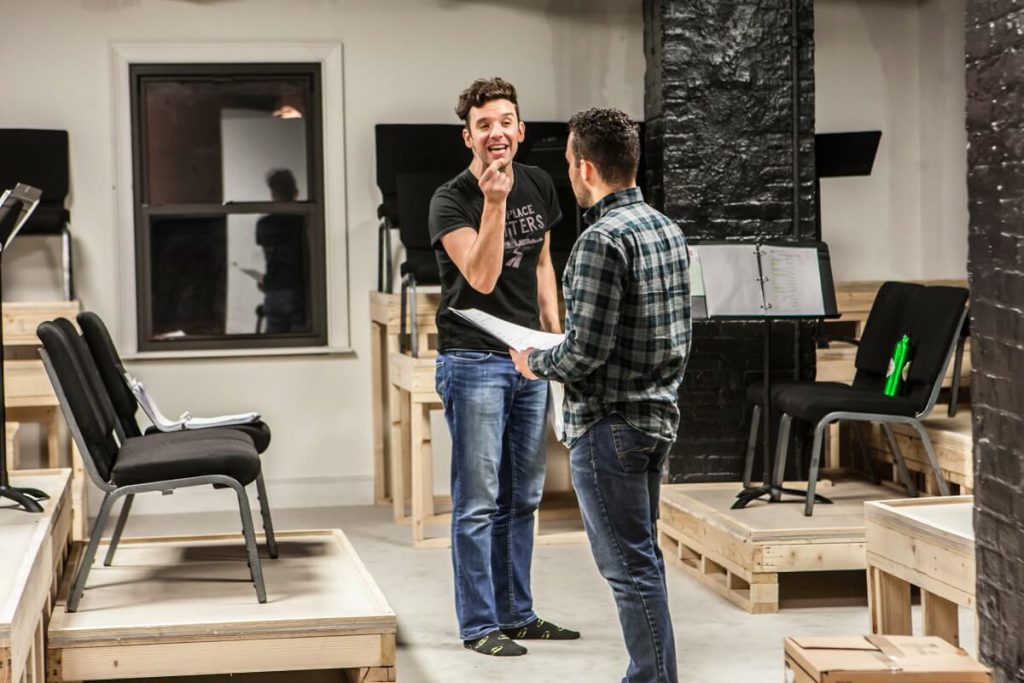

Elliptically structured, Homos jumps around to various landmarks in the Writer and the Academic’s relationship, allowing for the crime to slowly reveal itself in a way that doesn’t make it the crux. This format means the play avoids a sudden, out-of-sync climax and instead lets the comedy permeate as scenes fluidly transition from brusque phone calls to soap shop shenanigans. All the while Seavey’s voice pervades, prompting his audience to consider the nowness of queer lives just as his characters contemplate a future of steady, co-dependent togetherness.
That future, for Seavey’s characters and the familiar world they inhabit, is still planting its seeds, still inching toward homeostasis. “As a country, things have moved so far so fast; that is pretty amazing and sometimes presents a lot of challenges,” he said. “Are we in a better place now than we were 20 years ago? Yes, but another thing the characters grapple with is as we get something, like marriage equality, what does it mean to have that right when one of the defining things about being gay was that you never could get married?”
Maybe what lies beneath these questions gets closer to the goal of storytelling, to the secret of fiction. “I’d also just like to give people a glimpse into two lives that they may not know,” Seavey said.
Photos by Monique Carboni
You might also like 














